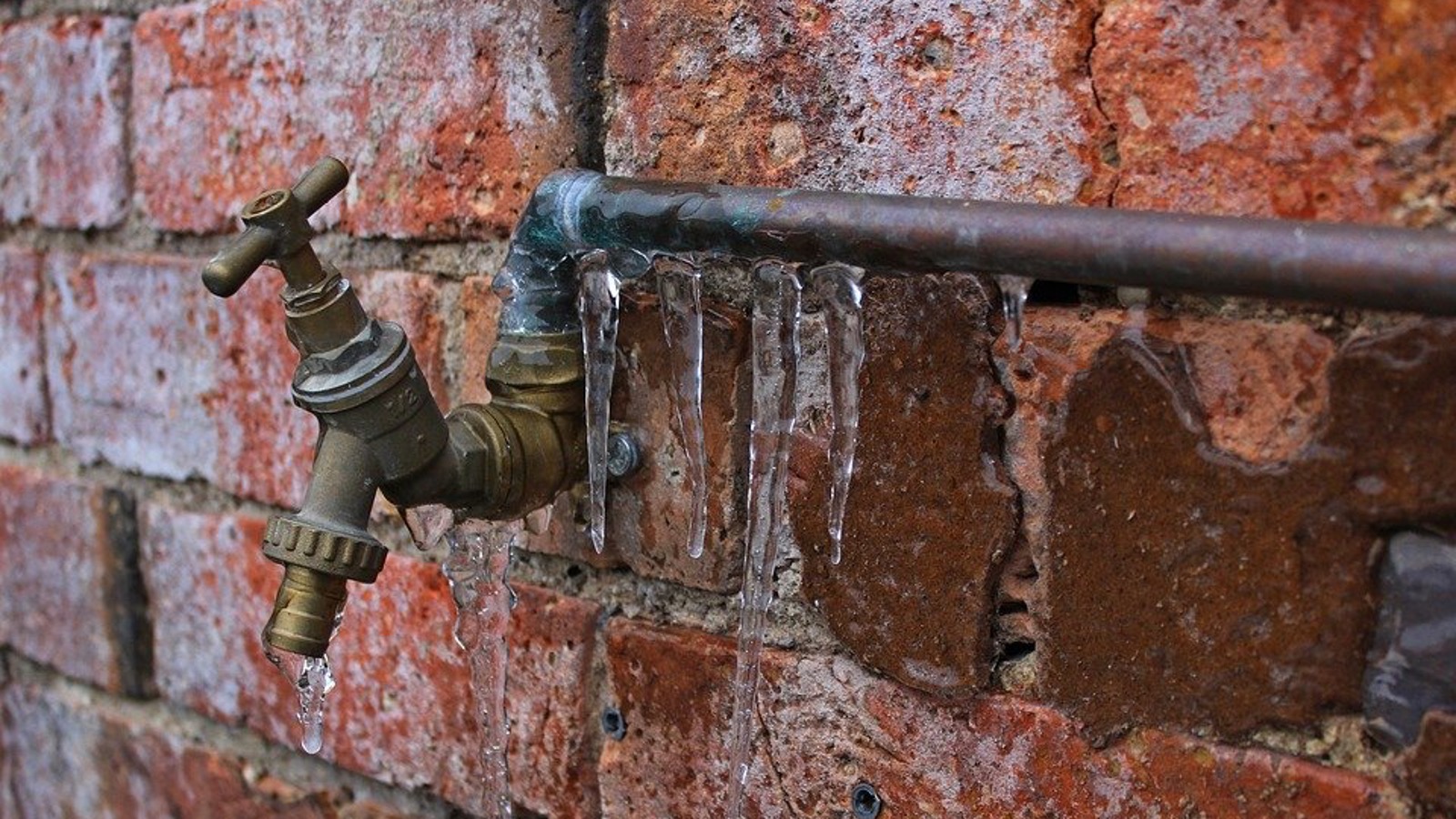My pipes are frozen. What should I do?
Our pipes are freezing in the current weather. Here are some ways to avoid frozen pipes, and some tips on what to do if they do freeze.

How do I prevent my pipes from freezing?
We are all scared of bursting pipes right now, but the newest recommendation is NOT to drip to preserve water for emergency services. Instead we have to focus on other methods to warm our water. Keep in mind that Texas homes have water pipes along the outside of the house instead of running internally, which is why our water shutoff valves are outside instead of in the basement.
Here are other tips:
-
Open cabinet doors to circulate heat.
-
Microwave warm towels and socks filled with rice to warm up outdoor pipes.
-
If it is going to be below 28 degrees for more than 4 hours, drip your outdoor faucets at a rate of 5 drops a minute. Most Texas water utilities are running on low water pressure so CONSERVATION of water is important right now. Check here to see if dripping is okay in your area.
What do I do if my pipes are frozen?
STEP ONE: Shut off water at the main valve. Video with instructions on how to shut off water.
STEP TWO: Report burst pipes to your local 311 number or local government hotlines. You can request an emergency water turn-off if you cannot locate your main water valve.
-
Austin: online form and hotline: 512-972-1000.
-
San Antonio: (210) 704-SAWS
-
Other cities: 3-1-1
STEP THREE: If you notice leaking or flooding, take steps to start fixing the issue. For insurance purposes later, make sure you take photos of the damage, log the hours you spend working on the issue, and save your receipts for any money you spend on repairs, tools, and supplies. Also be sure that any help you hire is reputable, there will be folks trying to scam victims of this disaster.
STEP FOUR: Once temperatures rise above freezing and power is restored, these are the best ways to thaw frozen water pipes:
-
Open cabinet doors to circulate heat
-
Use hair dryers, heat lamps or portable space heaters
-
DO NOT USE open flames or propane torches (fire hazard)
Insurance – What do I do about water damage?
As we wait for the weather to warm to see how many pipes have burst, it is a good idea to contact your insurance company to see what sort of coverage you have. What you pay will depend on your coverage and your deductibles, but here are some things to keep in mind.
There are generally three types of protection:
-
Dwelling coverage, which includes structural damage such as carpeting, flooring and walls.
-
Property coverage, which protects your belongings such as your furniture, appliances, clothing and electronics.
-
Loss of use, which covers your expenses to live elsewhere while your home is being repaired. This may include hotels and food.
Renters and tenants may be responsible for damages caused by frozen or burst pipes. Generally, renter’s insurance covers damage to your personal belongings, while your landlord’s insurance covers the property. Contact your property manager or landlord for more information.
Damage from disasters can get trickier. Check with your insurance provider and your landlord to be sure of what you are liable for.
-
Renter’s insurance typically covers damage to personal property from burst pipes.
-
Typical renters insurance DOES NOT cover water damage to personal property from sewage backups and flooding from natural disasters.
-
Building damage caused by water is likely covered by your landlord’s insurance.
Homeowners should check to make sure their insurance covers flooding from burst pipes. Some cities, like San Antonio, may have funds available to help cover costs.
-
Homeowners insurance usually helps cover damage to personal property from burst pipes as long as you have been doing proper maintenance.
-
Insurance may not cover the cost of replacing the pipes themselves.
-
Typical homeowners insurance DOES NOT cover water damage from sewage backups and flooding from natural disasters.
The Insurance Information Institute has some additional excellent tips for protecting your possessions and what type of insurance may kick in to cover water damage.
Avoid scams after the disaster
Unfortunately, there will likely be scams trying to make money off people who are suffering due to broken pipes. Be vigilant and make sure you talk to reputable folks.
Other tips to keep in mind:
-
Be wary of signing contracts right now for damage repairs. As temperatures warm, we may see more damage and more burst pipes that you will also need to get fixed.
-
Don’t give out your information over the phone. There have already been reports of scams asking Austin Energy customers for private information.
Read more tips on keeping safe after a major disaster here.


